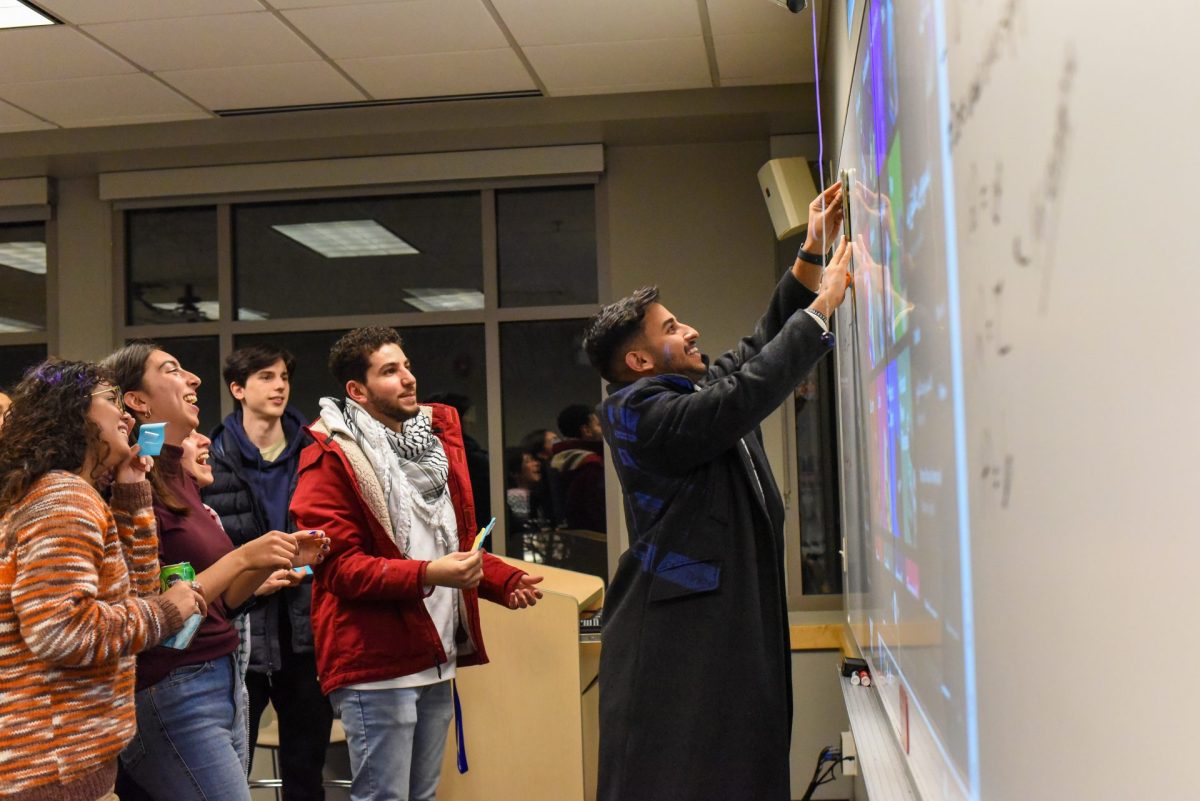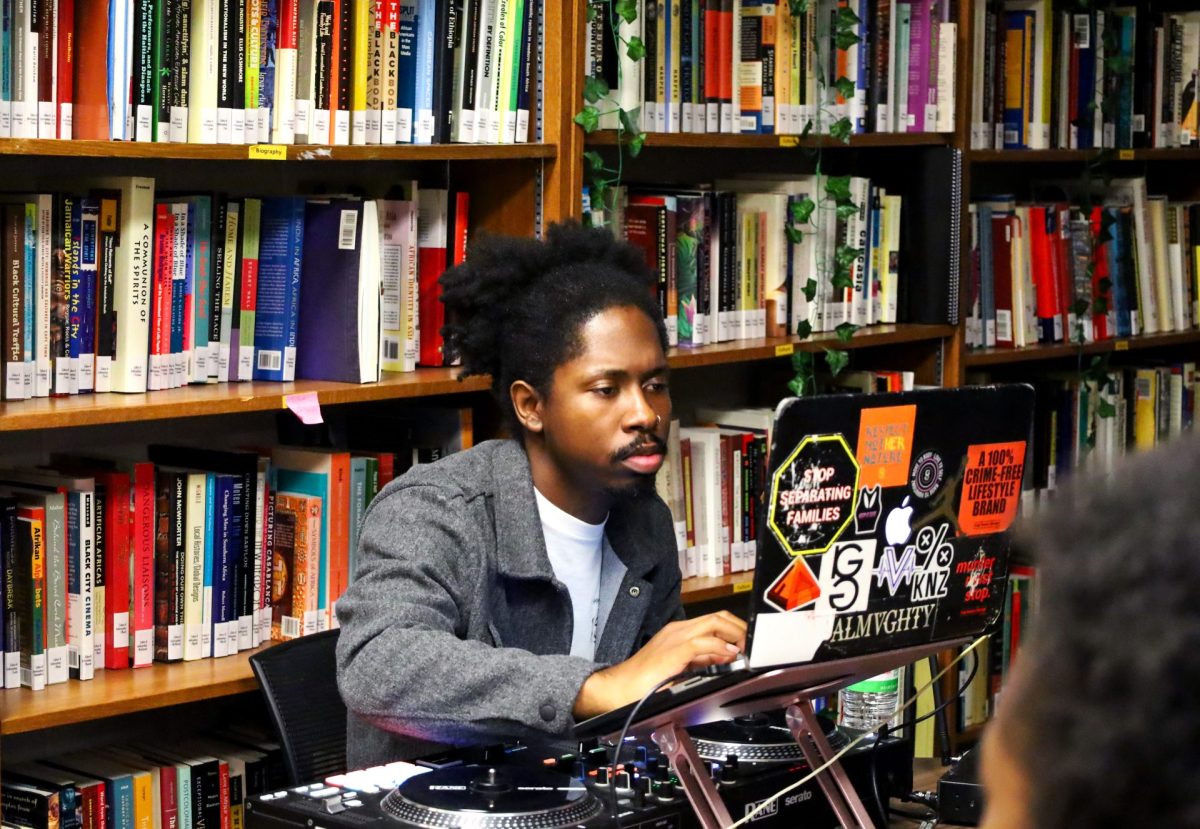Living in a big city can be expensive, and this is especially true of Chicago. Even though the sales tax in Cook County at almost 10 percent and the price of rent for a nice apartment in a friendly neighborhood often costs more than one paycheck, a high number of students still choose to live in Chicago.
Many of these students can’t rely on their parents for money and need to work to be able to afford the city lifestyle that Chicago has to offer. Some students choose to work off campus, but others feel that working on DePaul’s campus is ideal.
“I prefer to work on campus because it’s convenient,” said Paul Reyna, junior. “I’m a math tutor, which fills my junior year experiential learning credit, and I get paid for doing something I enjoy. I can’t argue with that.”
Some students like Reyna are lucky enough to find an on-campus job that fills a class or major requirement. Other than paid internships, this is a benefit the majority of off-campus jobs can’t offer.
Depending on the job, a lot of on-campus jobs are more likely to pay more than off-campus jobs. A basic food service or retail job is going to pay closer to $8.25 an hour, or minimum wage, than what a desk receptionist or resident advisor will get paid.
On-campus jobs are paid either through an hourly wage or a stipend. Wages start at minimum wage and vary per job. The same goes for positions such as Chicago Quarter Mentors, Orientation Leaders and Resident Advisors, which go through the Career Center through the Student Affairs department.
The Office of Student Employment uses a ladder of employment, which has four levels, A, B, C and D, to determine the level of experience necessary for different on-campus jobs. The different levels coincide with the level of income received by the student. Jobs in level A, which requires little to no experience, will pay closer to minimum wage, while jobs in level C and D. which require one to two years of experience, may pay up to $12 an hour.
The opportunity to network at school and with DePaul alumni is a benefit to working on campus. It also gives students the opportunity to meet students from other colleges within DePaul.
“Students who work on campus are involved in the DePaul community. They also can get to know staff and faculty who may be able to help them find a full-time position once they graduate,” said Sarah Carbone, Assistant Director of the DePaul Career Center. “The jobs on campus also offer transferrable skills that can translate into their career after college.”
Working off campus poses benefits as well. It gives students a break from DePaul and allows them to network with employers outside of DePaul.
“I looked specifically for a retail job when I was applying. I think my job at Gap is better than working on-campus because I get to meet people who don’t go to DePaul,” said Haley Loufty, sophomore.
Off-campus jobs offer more opportunities for development within a company. It is more difficult for student employees to be promoted at their job because a lot of managers on campus have already acquired a college degree or are graduate students.
Some students believe that one of the benefits of working on campus is that the job can be less strenuous and not as busy than working off campus.
“A normal day at work is sitting at the desk doing homework while watching who gets in and out of the dorms. My job duties consist of access control, I keep an eye on students coming in, I check guests in and make sure the resident access policies are met,” said Jeremy Escondo, junior. “My favorite thing about my job is the convenience of it, because I can do homework and it doesn’t conflict with my schedule.”
Especially for student workers, scheduling can be a huge downfall to having a job on the side, whether on or off campus. On-campus jobs are more willing to work with students to create a schedule that allows them to work and go to class. On-campus employees are able to work in between their classes during the day because they don’t have to leave school.
A feature of on-campus employment that turns students away is the limit of hours student employees are allowed to work. American citizens are permitted to work up to 25 hours a week during the school year, while international students can only work up to 20. All student employees can work up to 40 hours during the winter intercession and summer break if they are not taking classes.
“Students are here for school. It’s great if you can balance going to school and working full time, but 25 hours is really a good amount for a full-time student,” said Carbone.
A positive to working at DePaul is that most of the on-campus jobs give their employees weekends off. Only certain departments are open on the weekends, such as Campus Recreation and Student Affairs, but this does not deter students away from these jobs, as they are some of the most sought after on-campus positions, according to Carbone.
Students said that one of the negative things about on-campus employment is how competitive it is to find a job. Some believe it is easier to find a job off campus.
“Last year I applied to a lot of reference desk jobs and clerical jobs around DePaul through the campus job board. All together I applied to around 15 jobs, and none of them called me back,” said junior Jessica Barnes.
Some students are able to obtain more than one on-campus job, which makes the opportunities for on-campus employment even scarcer. A study by the student employment office discovered that the 6,900 jobs recorded at DePaul last year were filled with only 4,300 active student employees.
According to student employees, students searching for on-campus employment are not putting in enough effort towards finding a job or are not doing the right things to beat out the competition. Students might apply for a job that 300 other students applied to. Carbone advises students to tailor their resumes towards a few specific jobs they are most interested in.
“On-campus jobs are hard to find but a lot of students don’t realize that a job search entails more than just going on the job board,” said Vanswa Garbutt, junior. “Visiting the office you want to work in to talk to the supervisor and making friends with people who work the job you want and having them refer you to their supervisor is going to be what puts you over the top.”







